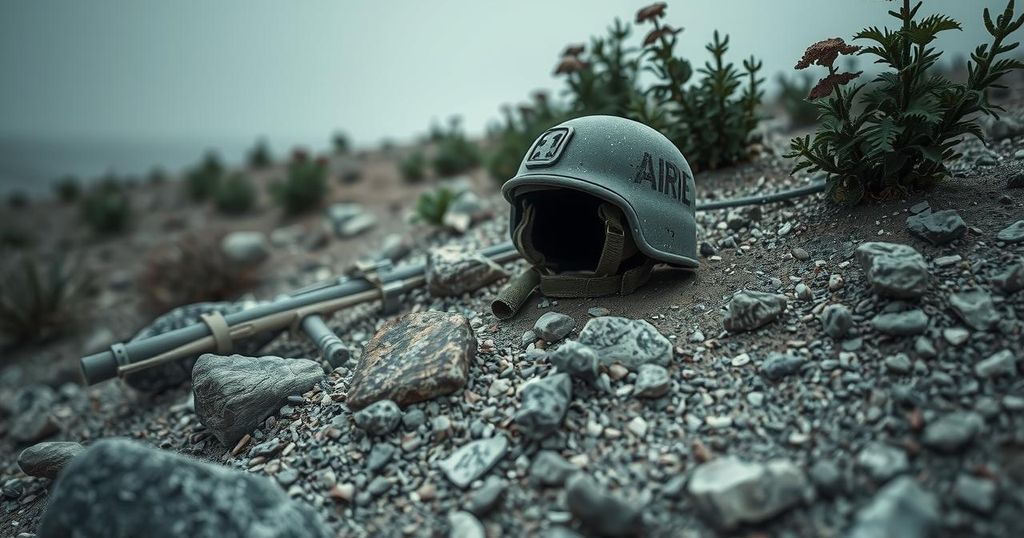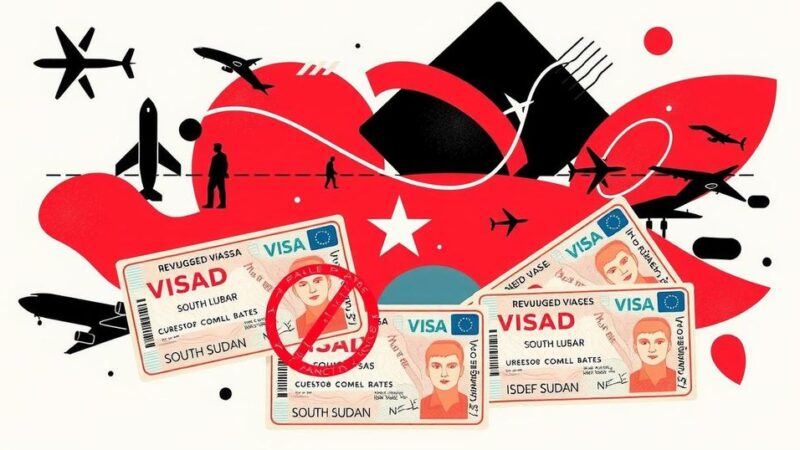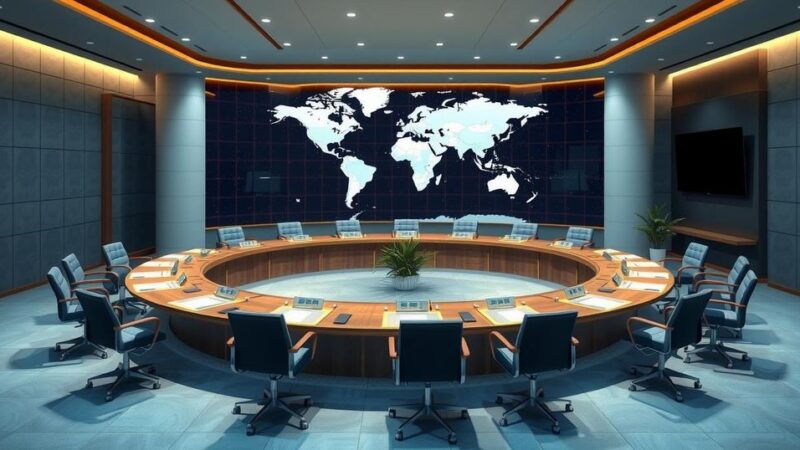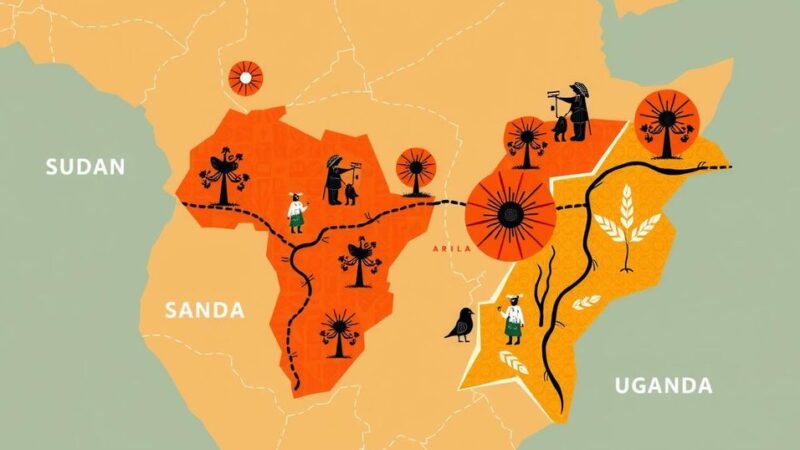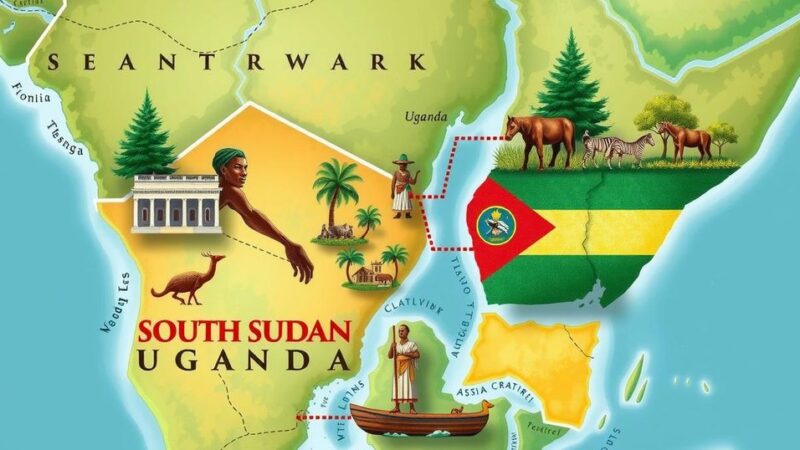Armed militants crossing from Nigeria into southern Cameroon have killed at least seven government troops, displacing civilians from about 15 villages. The attackers, suspected to be ethnic Fulani militants, have escalated their assaults, raising concerns among residents and officials about the ongoing threat posed by such groups. Local leaders are calling for increased military presence to combat these militant incursions and ensure safety in the region.
Recent reports from southern Cameroon indicate that armed individuals crossed from Nigeria, resulting in the death of at least seven government troops and the displacement of civilians from approximately 15 villages. According to locals, these assailants are believed to belong to a militant group. Villagers from the Akwaya district noted that several hundred armed men repeatedly crossed the Moon River this week, executing lethal attacks on their communities, exacerbated by the dry season that has lowered the river’s water level, facilitating easier foot crossings.
The initial assault occurred on Thursday, during which armed men, suspected to be ethnic Fulani militants from Nigeria, indiscriminately opened fire, setting houses ablaze while issuing threats to civilians. In response, Cameroon’s military engaged these attackers, reportedly forcing them to retreat after sustaining casualties. However, Agwa Linus Tarnonge, a traditional leader in Bakinjaw village, expressed surprise at the return of these men the following day, noting they were better armed than before.
Mr. Tarnonge reported that during a subsequent exchange of gunfire, despite some casualties among the attackers, they regrouped with an even larger force, heavily armed. “In the course of gunfire exchanges, some of those armed Fulani suffered casualties, and then the remaining ones retreated and came back with an overwhelming population [number of fighters], and with more sophisticated rifles,” Tarnonge stated. The heightened intensity of the attacks has raised significant concern among local populations.
The Cameroonian military confirmed the loss of five troops in the confrontation, with additional casualties among civilians and soldiers likely, given the limited access to the area. Aka Martin Tyoga, a local lawmaker, characterized the events as part of a broader attempt by Nigerian militant factions to control territory in Cameroon. He emphasized the urgent need for increased military presence to counter these assaults, describing the armed groups’ tactics as reminiscent of Boko Haram.
While no group has publicly claimed responsibility for the attacks, officials and residents of Akwaya express concern about the intentions of these militants. Reports indicate that troops have been dispatched to the border region for rescue operations, although the exact numbers involved remain undisclosed. Cameroonian authorities assert that they are collaborating with their Nigerian counterparts to address the persistent threat of these cross-border attacks.
Since the beginning of the conflict with Boko Haram in 2009, Nigeria has been striving to combat the spread of militant groups in its territory. Notably, Taraba state has experienced bombings and assaults attributed to factions such as the Islamic State West Africa Province (ISWAP). In a statement from 2021, regional leaders from Cameroon, Nigeria, Chad, and Niger expressed their concerns about ISWAP emerging as a significant threat in place of Boko Haram, following the death of its former leader in May of that year.
The persistence of armed violence in the border regions between Cameroon and Nigeria has become a critical issue, primarily due to the influence of militant groups such as Boko Haram and its successor, the Islamic State West Africa Province (ISWAP). Since 2009, conflict dynamics in the Lake Chad Basin have led to significant unrest, impacting not only Nigeria but also its neighbors, including Cameroon, Chad, and Niger. Recent encounters have highlighted the dangers posed by militants crossing into Cameroon, prompting calls for enhanced military support and coordinated responses between nations in the region.
In summary, the recent violent incursions from Nigerian militants into southern Cameroon have resulted in significant casualties among government troops and a growing humanitarian crisis for local civilians. The situation underscores the pressing need for increased military vigilance and international collaboration to address the threats posed by militant factions. Local leaders continue to advocate for enhanced military support and reinforced border security to ensure the safety of affected populations.
Original Source: www.voanews.com
